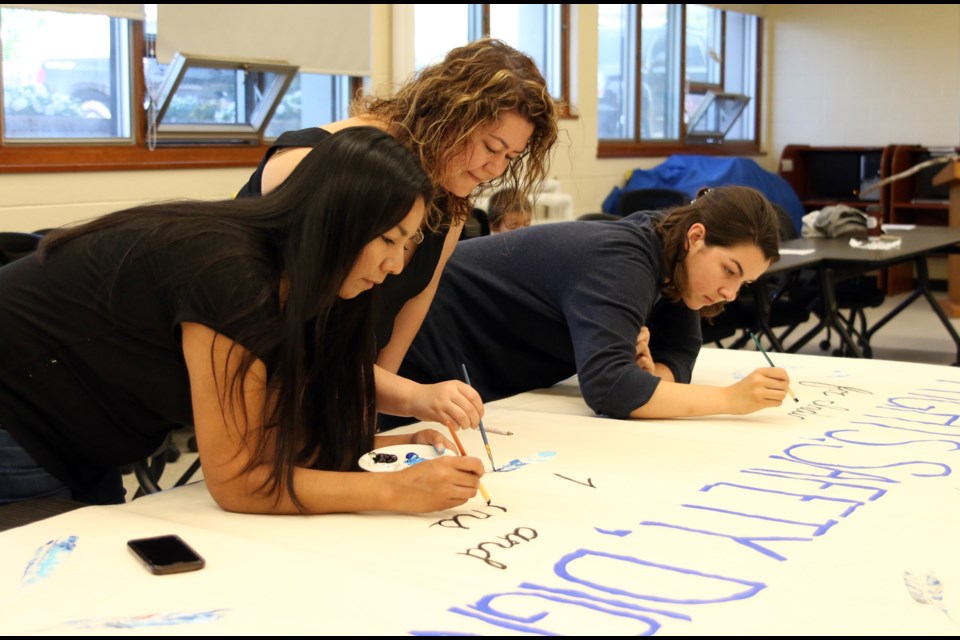THUNDER BAY - Since 2013, the number of incidents involving the trafficking of persons in Canada has steadily climbed from 78 to 271 in 2017. To mark the United Nations World Day Against the Trafficking in Persons, the Ontario Native Women’s Association is speaking out in the hopes of starting a dialogue about an issue that every community faces.
“We need to start recognizing that human trafficking exists in our community, it is exists here,” said Collin Graham, the community development manager who oversees the Indigenous anti-human trafficking liaison program with the ONWA. “It exists anywhere, in any community. I think what is wonderful is that we are coming together and finally start to talk about it.”
As part of the international day against trafficking in persons, community members and organizations gathered on Monday to work on several projects that not only provide curative art therapy, but will add to the voices of survivors of human trafficking in marches taking place across Ontario.
One of the projects is a large banner adorned with painted feathers that will be used in a march in Sault Ste. Marie to raise awareness about trafficking taking place in that area.
“Those feathers will represent those women and people that are still entrenched in experiencing exploitation,” Graham said. “When I talk about exploitation, from our perspective at ONWA, it is not just women, you look at the exploitation of our two-spirited brothers and sisters, as well as transgendered people.”
According to Graham, anyone can be a victim of human trafficking or exploitation, but he said Indigenous people across the country have been experiencing exploitation for more than 500 years.
“Because of colonialism, we have been groomed for the last 500 years,” he said. “That piece about colonialism keeps us at risk. When we talk about exploitation or trafficking, we do create space to talk about oppression and colonialism. There is a historical factor that plays out in contemporary society as an Indigenous community.”
There were two reported incidents of human trafficking in Thunder Bay in 2017 according to Statistics Canada. And though it is something that has been going on for much longer than most people realize, Graham said the public is starting to become aware that it is something that needs to be talked about, and the conversation has already started.
“Talking about our own experiences and recognizing that there are strengths and a lot of good healing coming from a place where we can have an open discussion and dialogue about what exploitation really looks like, especially for Indigenous people,” Graham said.
“It is not something that can be fixed by one agency, one organization, one sector,” he continued. “It is a collaboration and a community effort to do that. Where we need to move next is encouraging community members to be that, and start caring for one another again.”
